
Are you ready? Here we go.
Start at the top of the list (most important) and go down as far as you need. Click on any tip to read all about it. Perhaps you only need the first piece of advice?
- Choose a low-carb diet
- Eat when hungry
- Eat real food
- Eat only when hungry
- Measure your progress wisely
- Be persistent
- Avoid fruit
- Avoid beer
- Avoid artificial sweeteners
- Review any medications
- Stress less, sleep more
- Eat less of dairy products and nuts
- Supplement vitamins and minerals
- Use intermittent fasting
- Exercise wisely
- Achieve optimal ketosis
- Get your hormones checked
- Consider weight-loss pills (if desperate)
1. Choose a low-carb diet
 If you want to lose weight you should start by avoiding sugar and starch (like bread). This is an old idea: For 150 years or more there have been an infinite number of weight-loss diets based on eating fewer carbs. What’s new is that dozens of modern scientific studies have proven that, yes, low carb is the most effective way to lose weight.
If you want to lose weight you should start by avoiding sugar and starch (like bread). This is an old idea: For 150 years or more there have been an infinite number of weight-loss diets based on eating fewer carbs. What’s new is that dozens of modern scientific studies have proven that, yes, low carb is the most effective way to lose weight.
Obviously, it’s still possible to lose weight on any diet – just eat fewer calories than you burn, right? The problem with this simplistic advice is that it ignores the elephant in the room: Hunger. Most people don’t like to “just eat less”, i.e. being hungry forever. That’s dieting for masochists. Sooner or later a normal person will give up and eat, hence the prevalence of “yo-yo dieting”.
The main advantage of the low carb diet is that they cause you to want to eat less. Even without counting calories most overweight people eat far fewer calories on low carb. Sugar and starch may increase your hunger, while avoiding them may decrease your appetite to an adequate level. If your body wants to have an appropriate number of calories you don’t need to bother counting them. Thus: Calories count, but you don’t need to count them.
2. Eat when hungry
Don’t be hungry. The most common mistake when starting a low carb diet: Reducing carb intake while still being afraid of fat. Carbs and fat are the body’s two main energy sources, and it needs at least one of them.

Low carb AND low fat = starvation

Low carb AND low fat = starvation
Avoiding both carbs and fat results in hunger, cravings and fatigue. Sooner or later people can’t stand it and give up. The solution is to eat more natural fat until you feel satisfied. For example:
- Butter
- Full-fat cream
- Olive oil
- Meat (including the fat)
- Fatty fish
- Bacon
- Eggs
- Coconut oil, etc.
Another common mistake when eating a low-carb diet is getting fooled by the creative marketing of special “low carb” products.
Remember: An effective low-carb diet for weight loss should be based on real food, like this:

Real food is what humans have been eating for thousands or (even better) millions of years, e.g. meat, fish, vegetables, eggs, butter, olive oil, nuts etc.
If you want to lose weight you’d better avoid special “low-carb” products that are full of carbs. This should be obvious, but creative marketers are doing all they can to fool you (and get your money). They will tell you that you can eat cookies, pasta, ice cream, bread and plenty of chocolate on a low-carb diet, as long as you buy their brand. They’re full of carbohydrates. Don’t be fooled.


How about low-carb bread? Be careful: if it’s baked with grains it’s certainly not low carb. But some companies still try to sell it to you as a low-carb option.
Low-carb chocolate is usually full of sugar alcohols, which the manufacturer does not count as carbs. But roughly half of these carbs may be absorbed, raising blood sugar and insulin. The rest of the carbs ends up in the colon, potentially causing gas and diarrhea. Furthermore, any sweeteners can maintain sugar cravings.
4. Eat only when hungry
On a low-carb diet you should aim to eat when hungry (see tip #2 above). And if you’re not hungry? Don’t eat. Nothing slows down weight loss more than frequently eating a lot of food that you do not need. This, in fact, is so important that it’s worth this section of it’s own.
5. Measure your progress wisely
Tracking successful weight loss is sometimes trickier than you’d think. Focusing only on weight and stepping on the scale every day might be misleading, cause unnecessary anxiety and undermine your motivation for no good reason.
The scale is not necessarily your friend. You may want to lose fat – but the scale measures muscles, bone and internal organs as well. Gaining muscle is a good thing. Thus weight or BMI are imperfect ways to measure your progress. This is especially true if you’re just coming off a long period of semi-starvation (calorie counting), as your body may want to restore lost muscles etc. Starting weight training and gaining muscle can also hide your fat loss.
Losing fat and gaining muscles means great progress, but you may miss this if you only measure your weight. Thus it’s smart to also track the disappearance of your belly fat, by measuring your waist circumference.
Here’s how to do it:
- Put the measuring tape around your middle, like in the picture above, slightly above your belly button (to be exact: at the midpoint between your lowest rib and the top of your hipbone, at your side)
- Exhale and relax (don’t suck in your stomach)
- Make sure the measuring tape fits snuggly, without compressing your skin
- Measure
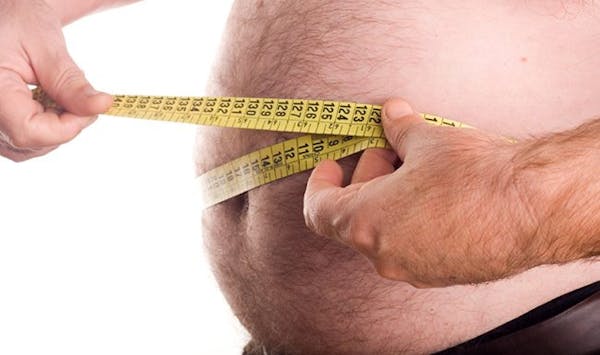
6. Be persistent
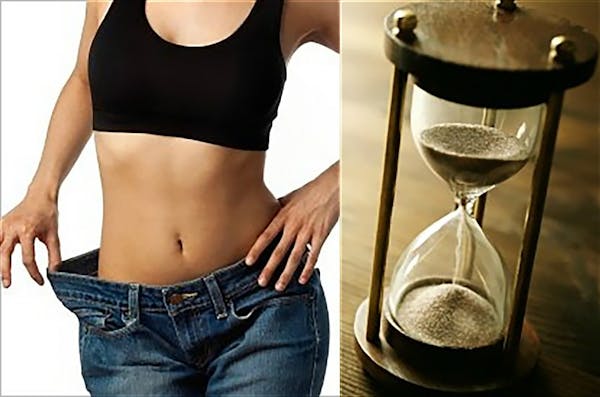 It usually takes years or decades to gain a lot of weight. Trying to lose it all as quickly as possible by starving yourself rarely works well long-term, that’s just a recipe for “yo-yo dieting”. To succeed, you need something that works long term.
It usually takes years or decades to gain a lot of weight. Trying to lose it all as quickly as possible by starving yourself rarely works well long-term, that’s just a recipe for “yo-yo dieting”. To succeed, you need something that works long term.
7. Avoid eating fruit
This piece of advice is controversial as fruit has an almost magical health aura today. People may believe that fruit is nutritious but unfortunately fruit contains a lot of sugar – around 10% by weight (the rest is mostly water). Just taste an orange or a grape. Sweet, right?
Five servings of fruit per day are equivalent to the amount of sugar in 16 ounces of soda (500 ml). Contrary to what many people believe, the sugar is more or less identical (about 50% glucose, 50% fructose).
Sugar from fruit can shut down fat burning. This can increase your hunger and slow your weight loss. For best results avoid fruit – or enjoy it occasionally as a treat.
Isn’t fruit natural?
Most people believe that fruit is natural, but today’s fruits in the grocery store have very little in common with what fruits looked like before they were cultured. There’s way more sugar in modern domesticated fruits.


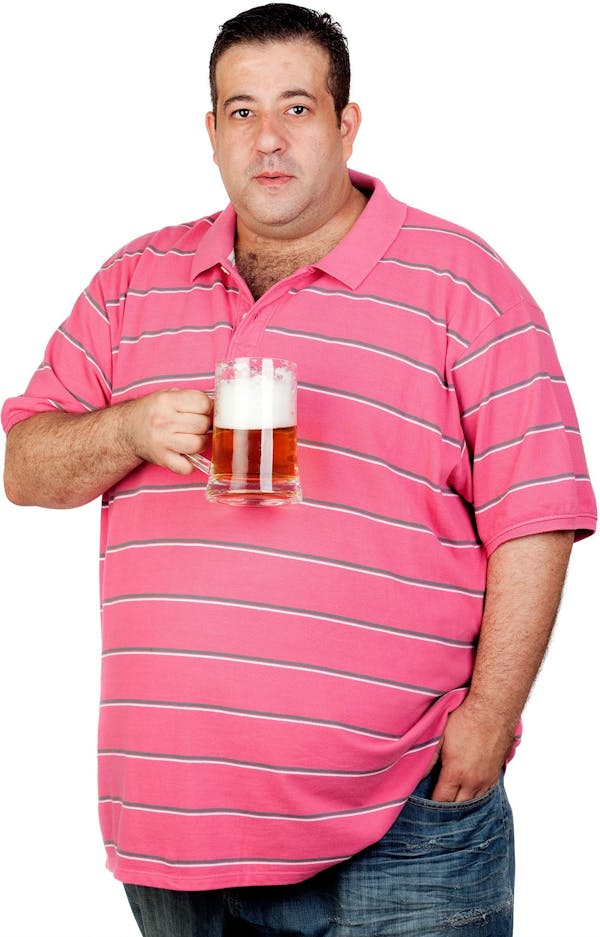 8. Avoid drinking beer
8. Avoid drinking beer
Beer contains rapidly digested carbs that shut down fat burning. That’s why beer is sometimes referred to as “liquid bread”. There’s a good reason for the term “beer belly.”
Here are smarter alcoholic options for losing weight:
- Wine (red or dry white)
- Dry champagne
- Hard liquor like whisky, cognac, vodka (avoid sweetened cocktails – try vodka, soda water, lime instead)
alcohol might slow weight loss somewhat, so moderation
is still a good idea.
9. Avoid artificial sweeteners
Many people replace sugar with artificial sweeteners in the belief that this will reduce their calorie intake and cause weight loss. It sounds plausible. Several studies, however, have failed to show any positive effect on weight loss by consuming artificial sweeteners instead of plain sugar.
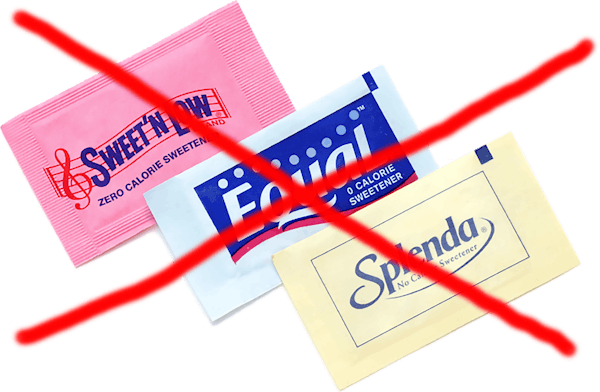 Instead, according to scientific studies, artificial sweeteners can increase appetite and maintain cravings for sweet food. And one recent independent study showed that switching drinks with artificial sweeteners to water clearly helped women lose weight.
Instead, according to scientific studies, artificial sweeteners can increase appetite and maintain cravings for sweet food. And one recent independent study showed that switching drinks with artificial sweeteners to water clearly helped women lose weight.
10. Review any medications
Many prescription drugs can stall your weight loss. Discuss any change in treatment with your doctor. Here are the worst three:
- Insulin injections, especially at higher doses, are probably the worst obstacle for weight loss. There are three ways to reduce your need for insulin:A. Eat fewer carbs, which makes it a easier to lose weight. The fewer carbs you eat the less insulin you need. Remember to lower your doses if you can.B. If this isn’t enough, treatment with Metformin tablets (at a dose of 2–3 grams/day) can decrease the need for insulin (at least for type 2 diabetics).C. If this is not enough to get off insulin (again, for type 2 diabetics) you could try newer promising drugs like Victoza or Byetta. These reduce the need for insulin and cause weight loss.
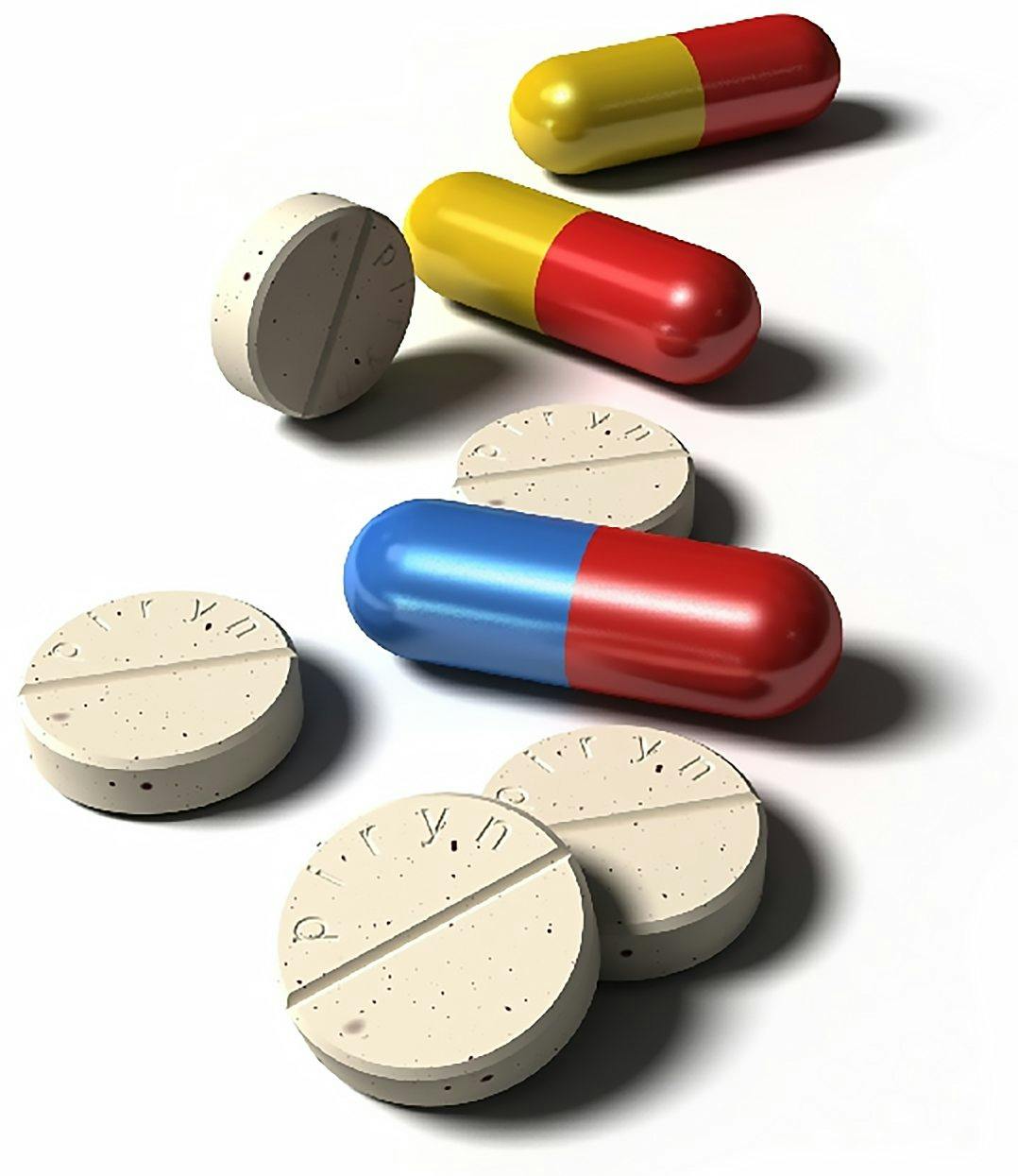 Other diabetes medications. Insulin-releasing tablets (e.g. sulphonylureas) often lead to weight gain. These include: Minodiab, Euglucon, Daonil, and Glibenclamide. Tablets like Avandia, Actos, Starlix and NovoNorm also encourage weight gain. But not Metformin. The newer drugs Victoza and Byetta (injectable) often lead to weight loss, but possible long-term side effects are still unknown. More on diabetes
Other diabetes medications. Insulin-releasing tablets (e.g. sulphonylureas) often lead to weight gain. These include: Minodiab, Euglucon, Daonil, and Glibenclamide. Tablets like Avandia, Actos, Starlix and NovoNorm also encourage weight gain. But not Metformin. The newer drugs Victoza and Byetta (injectable) often lead to weight loss, but possible long-term side effects are still unknown. More on diabetes
These other medications can also cause problems:
- Neuroleptics/antipsychotic drugs, can often encourage weight gain. Especially newer drugs like Zyprexa (Olanzapine).
- Some antidepressant medications can cause weight gain, especially the older tricyclic antidepressants (TCAs) such as Tryptizol, Saroten, and Clomipramine; as well as newer drugs such as Remeron (Mirtazapine). Lithium (for manic-depressive disorder) often causes weight gain. The most common antidepressants known as SSRI’s (for example Citalopram and Sertraline) usually don’t impact weight significantly. More on depression
- Some contraceptives often contribute to slight weight gain, especially those that contain only progesterone and no estrogen, for example the mini-pill, the contraceptive injection, or a contraceptive implant. More on fertility
- Blood pressure medication in the form of beta blockers can cause weight gain. These drugs include: Seloken, Metoprolol and Atenolol. More on high blood pressure
- Epilepsy drugs may cause weight gain (e.g. Carbamazepine and Valproate).
- Allergy medications, antihistamines can cause weight gain, especially at high doses.
- Antibiotics can possibly lead to a temporary weight gain by disturbing the gut microbiota and increasing the amount of energy we absorb from food. This is still speculative for humans but it’s another reason not to use antibiotics unless you truly need it.
11. Stress less, sleep more

Have you ever wished for more hours of sleep, and a less stressful life in general? Most people have – stress and lack of sleep can be bad news for their weight.
Chronic stress may increase levels of stress hormones such as cortisol in your body. This can cause increased hunger and result in weight gain. If you’re looking to lose weight, you should review possible ways to decrease or better handle excessive stress in your life. Although this often demands substantial changes, even altering small things – such as posture – may immediately affect your stress hormone levels, and perhaps your weight.
You should also make an effort to get enough good sleep, preferably every night. Strive to wake up refreshed of your own accord, independently of the alarm clock. If you’re the kind of person who always gets brutally woken up by the alarm ringing, you might never be giving your body adequate rest.
You should also make an effort to get enough good sleep, preferably every night. Strive to wake up refreshed of your own accord, independently of the alarm clock. If you’re the kind of person who always gets brutally woken up by the alarm ringing, you might never be giving your body adequate rest.
One way to combat this is to go to bed early enough for your body to wake up autonomously before the alarm clock goes off. Letting yourself get a good night’s sleep is another way of reducing stress hormone levels.
Sleep deprivation, on the other hand, comes hand in hand with sugar cravings. It also has an adverse effect on self-discipline and makes it painfully easy to give in to temptation (it’s no coincidence that induced sleep deprivation is a common interrogation technique). Similarly, sleep deprivation weakens your resolve to work out.
12. Eat less of dairy products and nuts

Can you eat as much as you like, and still lose weight? Yes, it tends to work just fine with a low-carbohydrate diet, as appetite regulation happens effortlessly.
However, despite the fact that a low-carbohydrate diet generally makes it easy to eat just enough, there are foods classified as low carb which become a problem in larger quantities. If you find yourself having a hard time losing weight on a low carb diet, you could try to be more careful with:
- Dairy products (yoghurt, cream, cheese)
- Nuts
Dairy products contain varying amounts of lactose (milk sugar), which slows down weight loss. What’s more, part of the protein in milk generates a significant insulin response, which can have the same effect. Consequently, cutting back on dairy products may accelerate weight loss. This applies especially to dairy products typically lacking in fat, such as regular milk and various yogurts, but be careful with full-fat dairy such as cream and cheese all the same. And don’t forget whey protein powder, which is pure milk protein.\
13. Supplement vitamins and minerals
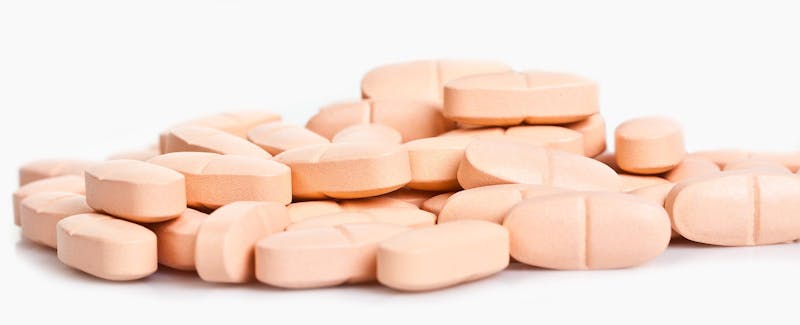
Your body needs a certain amount of essential vitamins and minerals to function properly. What happens when you don’t get enough of them? What happens when you eat too little food, or when the food you eat isn’t sufficiently nutritious? Perhaps our bodies catch on and reply by increasing hunger levels. After all – if we eat more, we increase the chances of consuming enough of whatever nutrient we are lacking.
On the other hand, reliable access to vitamins and minerals could perhaps mean decreased hunger levels and decreased cravings, thereby promoting weight loss.
The above is, of course, speculation. But there are well-performed studies which suggest it might not be far from the truth.
Vitamin D
A lack of vitamin D is probably the most common deficiency in northern countries such as Canada, or most of the US. Three recent studies indicate that, when compared to a placebo, a vitamin D supplement can decrease your fat weight or waist measurement
in one of the studies, 77 overweight or obese women received either a supplement of 1000 units of vitamin D, or a placebo, every day for 3 months. Those who took the vitamin D supplement decreased their body fat by 2.7 kg (6 pounds) – significantly more than the placebo group, who hardly decreased their fat weight at all.
Multivitamins
A study from 2010 involved around a hundred women with weight issues, separating them into three groups. One group received a daily multivitamin supplement, the other a daily calcium supplement, and the last group only a placebo. The study went on for six months.
Unsurprisingly, the results showed that nothing had happened to the weight of the women receiving calcium or the placebo. However, the group which took the multivitamin lost more weight – about 3 kg more – and improved their health markers. Among other things, their basal metabolic rate (the rate at which the body burns calories when at rest) increased.
Conclusion
Nutrient-dense, good food is certainly the foundation of weight loss. But an adequate amount of vitamin D can be difficult to ingest via food. In the case of a lack of sun (such as during the darker months of fall and winter), it’s wise to supplement for multiple health reasons – and perhaps even for your weight.
If you’re overweight and not entirely sure that your diet provides enough nutrients, it may be worthwhile to take a multivitamin pill. Unfortunately, they still contain only minimal doses of vitamin D, so you need both for the full effect.
14. Use intermittent fasting
There are many things to consider before moving on to this tip #14, but don’t let this fool you. This is one of the most effective weapons available to lose weight. It’s perfect if you are stuck at a weight-loss plateau despite “doing everything right” – or to speed up your weight loss.
This super weapon is called intermittent fasting. It means exactly what it sounds like… not eating, during a specified time interval.
15. Exercise wisely

Do you wonder why this weight-loss tip doesn’t show up until number 15 on the list? It’s because few things are so overrated for weight loss as exercise is.
Have you ever watched “The Biggest Loser”? The participants take leave from their jobs (and family) for months. They are allowed only small portions of food, and work out as though it were their full-time job – 40 hours a week, sometimes more. This method is clearly unsustainable for the average person in the long run.
Just taking the stairs instead of the elevator, or getting off the bus one stop earlier, isn’t going to change the numbers on your bathroom scale. It’s a myth. Sorry. Studies show that if you just start exercising, you’re going to need at least one hour of tough workouts every single day to noticeably lose weight.
16. Achieve optimal ketosis
Warning: Not recommended for type 1 diabetics, see below.
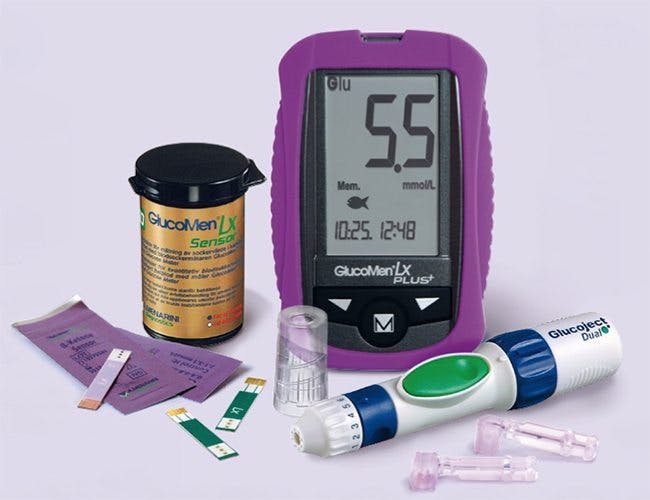
We’ve now arrived at tip number 16. If you’re still having trouble losing weight, despite following the 15 pieces of advice listed above, it might be a good idea to bring out the heavy artillery: optimal ketosis. Many people stalling at weight plateaus while on a low-carb diet have found optimal ketosis helpful. It’s what can melt the fat off once again.
So how does this work? A quick run-through: The first tip was to eat low carb. This is because a low-carb diet lowers your levels of the fat-storing hormone insulin, allowing your fat deposits to shrink and release their stored energy. This tends to cause you to want to consume less calories than you expend – without hunger – and lose weight. Several of the tips mentioned above are about fine-tuning your diet to better this effect.
How do you know you’re getting the maximum hormonal impact from your low-carb diet? You do that by achieving what’s known as “optimal ketosis”.
17. Get your hormones checked
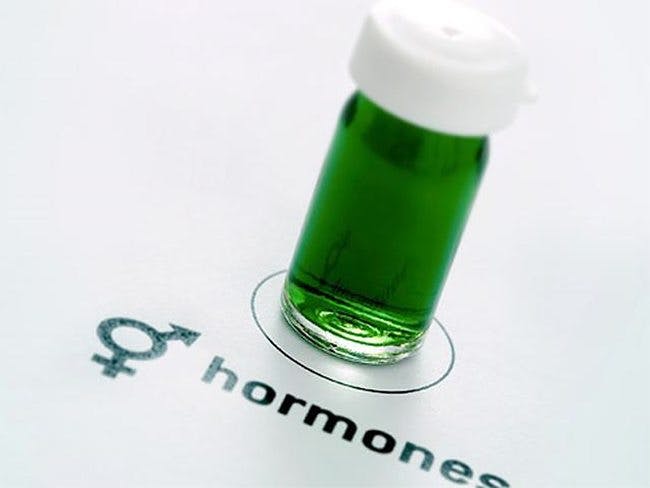
So you’ve followed the previous tips, implemented major lifestyle changes and established that neither medication nor vitamin deficiency is an issue. You’ve even tried being in optimal ketosis for a while (ensuring low insulin levels). And you still can’t hit the normal weight mark?
If this applies to you, it’s high time to consider the possibility that hormonal imbalances are the cause of your troubles. There are three common problem areas:
- Thyroid hormone
- Sex hormones
- Stress hormones
Thyroid Hormone
Some people, especially women, suffer decreased metabolism as a result of thyroid hormone deficiency – hypothyroidism. Common symptoms are:
- Fatigue
- Cold intolerance
- Constipation
- Dry skin
- Weight gain
Sex hormones
Sex hormones also affect your weight:
Women: Women can suffer from the endocrine disorder PCOS – polycystic ovarian syndrome – which elevates testosterone and insulin levels. This can mean weight gain and menstrual disorders (very common), infertility, acne and male pattern hair growth (such as facial hair).
Stress hormone
The final possible culprit behind stubborn weight issues may be the stress hormone, cortisol. Too much cortisol will increase hunger levels, bringing along subsequent weight gain. The most common cause of elevated cortisol is chronic stress and lack of sleep (see tip #10), or cortisone medication (tip #9). It’s a good idea to try your best to do something about this.
In rare and extreme cases, you could be dealing with a specific kind of tumor that drives cortisol production. The condition is called Cushing’s syndrome. If you suspect you’re suffering from this, consult your doctor and they will run appropriate tests.
18. Consider weight-loss pills (if desperate)
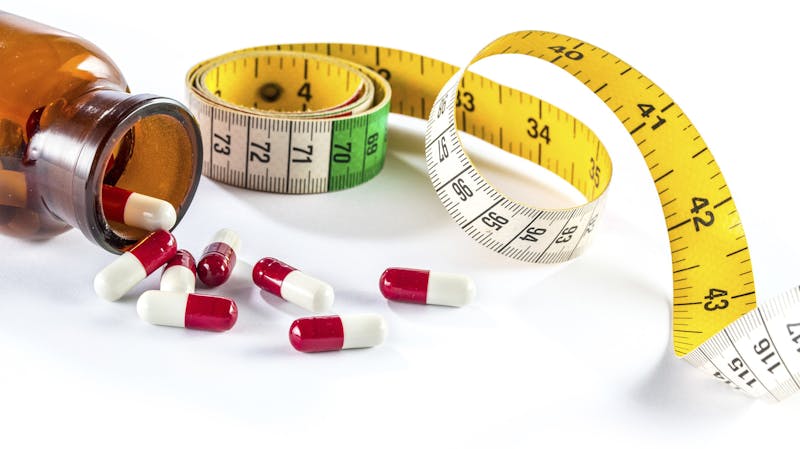
It sounds like a dream. Keep living like you already do, take a pill a day, and effortlessly lose your excess weight. This is why weight-loss pills is a billion dollar industry.
So do they work? Yes. But they’re not very effective.
There are many drugs that result in a modest weight loss (a few pounds on average) at the expense of significant side effects. In my opinion there’s only one drug that you may want to consider using.
Before we get to that one drug we’ll very briefly summarize the other options and why they are not great.


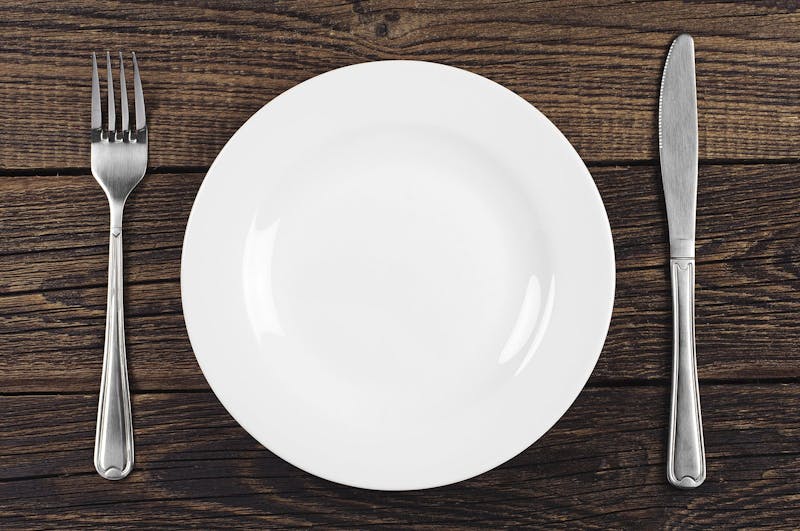





No comments:
Post a Comment